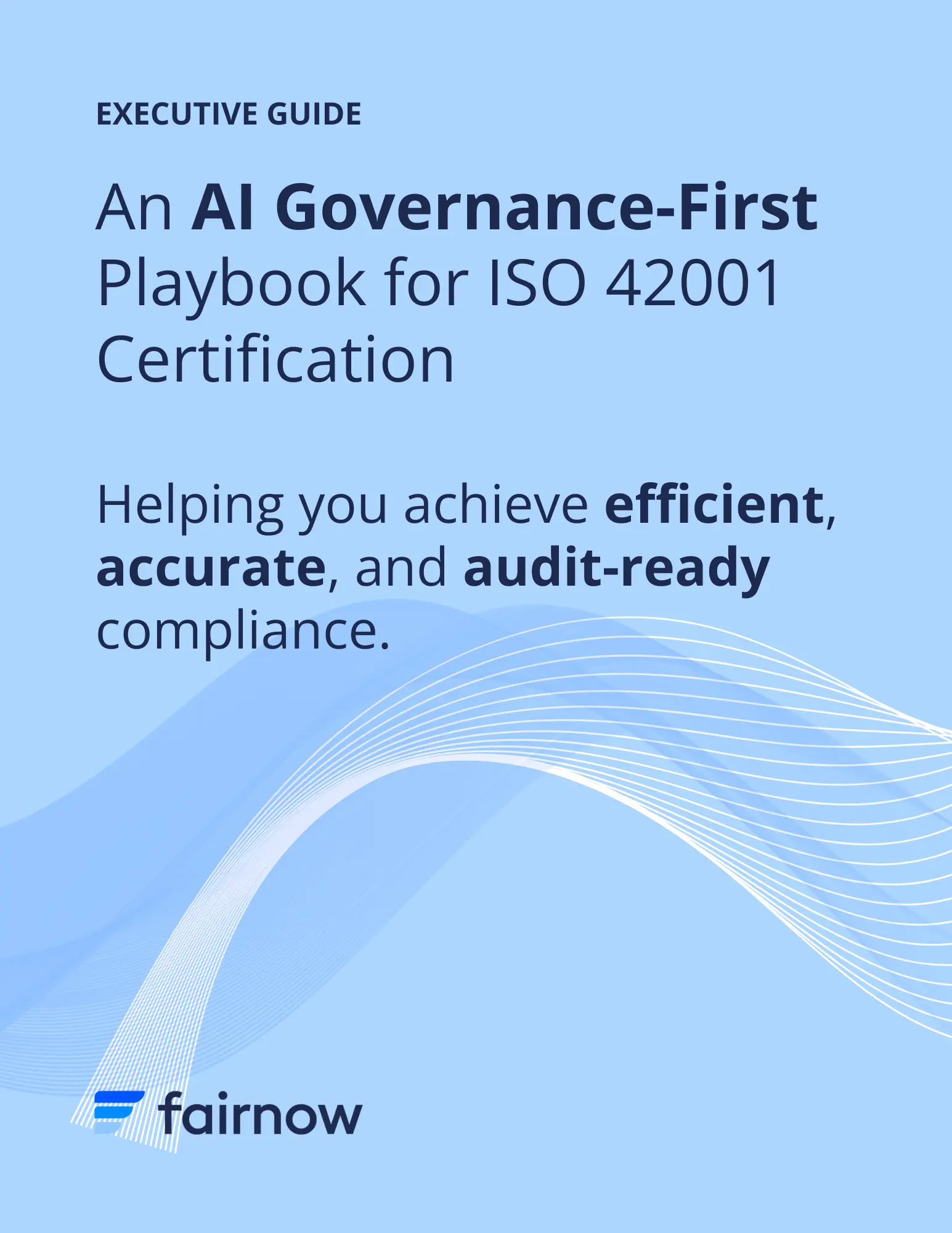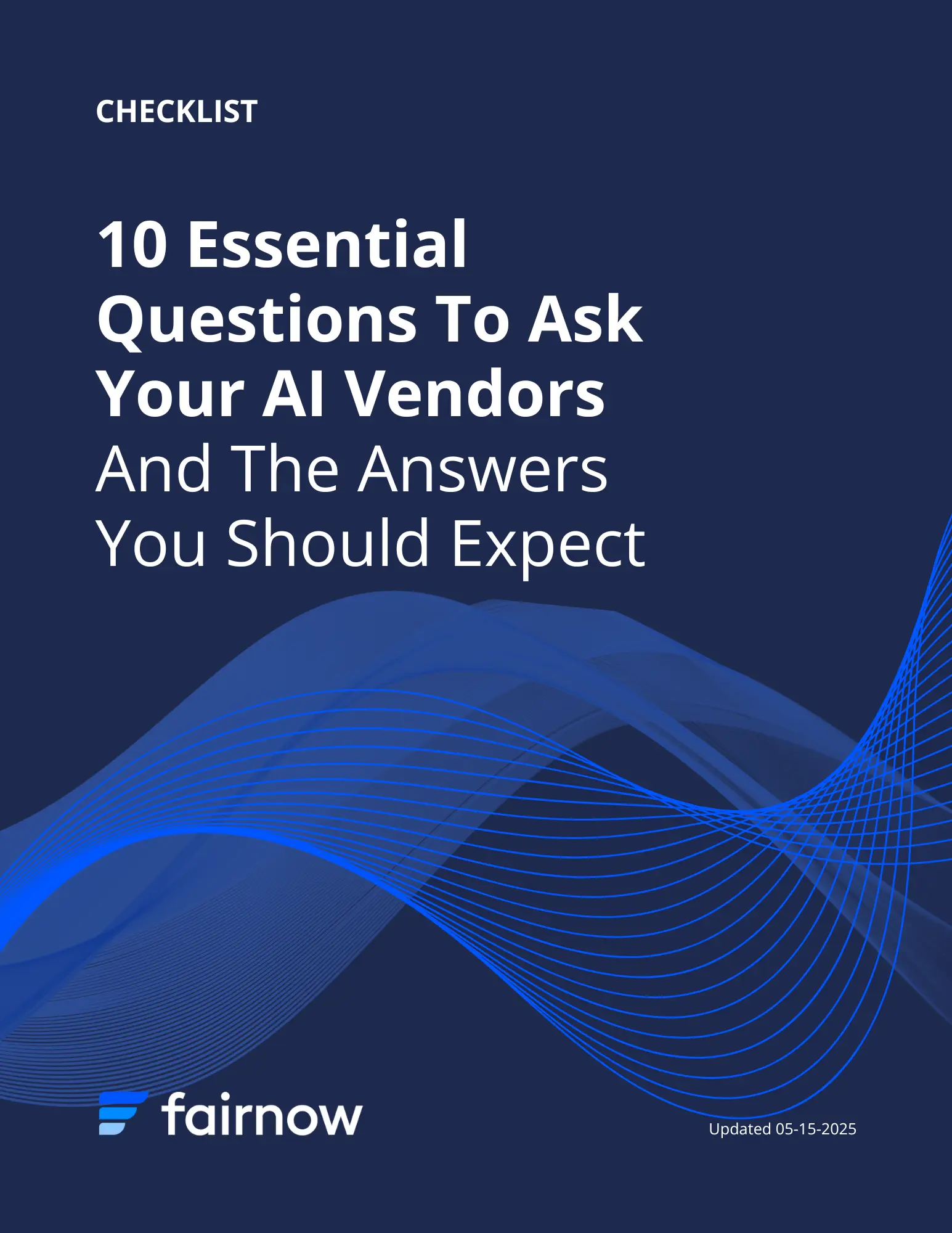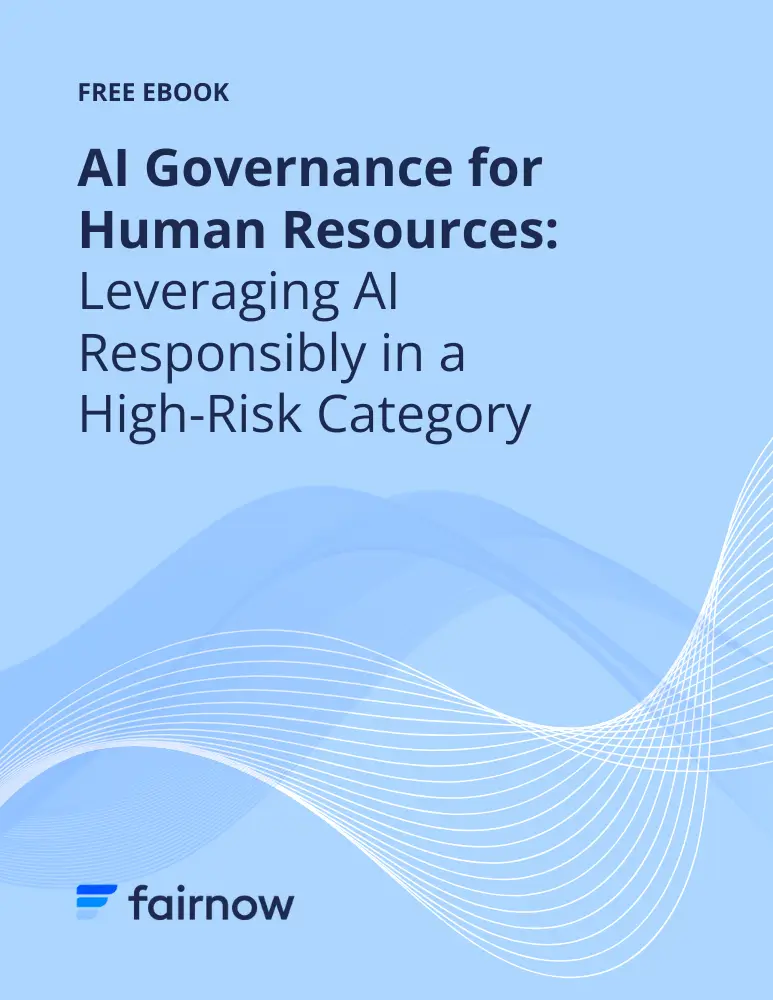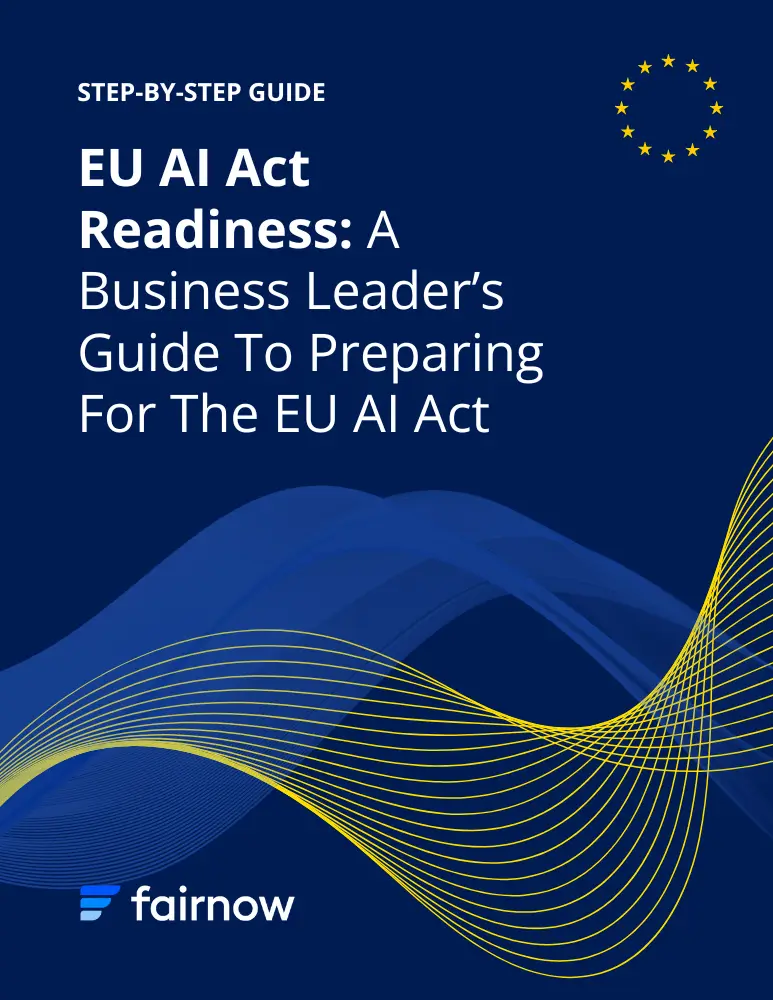Download Free Responsible AI Policy Template
The Responsible AI Policy Template continues to expand our AI Governance Template Starter Kit—built to help organizations put clear, principled guardrails around how AI is adopted, developed, and communicated.
FairNow draws on decades of hands-on experience in AI, data science, compliance, and risk management. Each template reflects real-world lessons from governing AI in high-stakes environments—shaped by direct work with evolving regulations, internal governance councils, legal teams, and third-party vendors.
This template gives organizations a structured way to define and share their commitment to fairness, transparency, privacy, and human accountability in AI. It helps legal, compliance, and product leaders align on ethical standards while reinforcing trust with employees, customers, and regulators.

Template Page Count: 3 Pages
Technical Language Level: Moderate
Estimated Reading Time: 7 Minutes
FAQs for Responsible AI Policy Template
What’s included in the Free Responsible AI Policy Template?
The template provides a complete, customizable policy framework for communicating your organization’s ethical stance and principles around AI development and use. It includes:
-
A purpose-driven introduction outlining commitment to ethical AI
-
Five foundational principles: fairness, transparency, privacy & data security, accountability, and safety
-
Specific risk management protocols (ethics, bias mitigation, and user trust)
-
Commitments to continuous learning and updates as AI evolves
-
A statement of public accountability and organizational values
Why did we write this Responsible AI Policy template?
Too many companies are launching or adopting AI without a public, cross-functional commitment to how they’ll use it responsibly. This template gives teams—especially legal, risk, HR, and product leadership—a shared language and structure to define AI values and expectations across the enterprise.
Why will you want to use the Responsible AI Policy?
Because it gives your organization a visible, values-driven stance on AI. Whether you’re responding to board pressure, preparing for ISO 42001, or communicating principles externally, this template helps formalize your commitments around fairness, privacy, explainability, and human oversight.
What kinds of risks does a Responsible AI Policy help reduce?
It helps mitigate:
- Lack of public accountability or internal alignment on AI ethics
- Legal and reputational exposure from biased or opaque AI decisions
- Misuse of personal data or violations of privacy laws
- Unclear escalation paths when AI systems cause harm
- Gaps between technical AI governance controls and organizational values
How is Responsible AI Policy enforced in practice?
The policy sets expectations that must be operationalized through role-specific procedures—like model reviews, training, documentation, and human-in-the-loop checkpoints. Enforcement comes through integrating the policy into AI lifecycle oversight, internal governance committees, and compliance audits.



